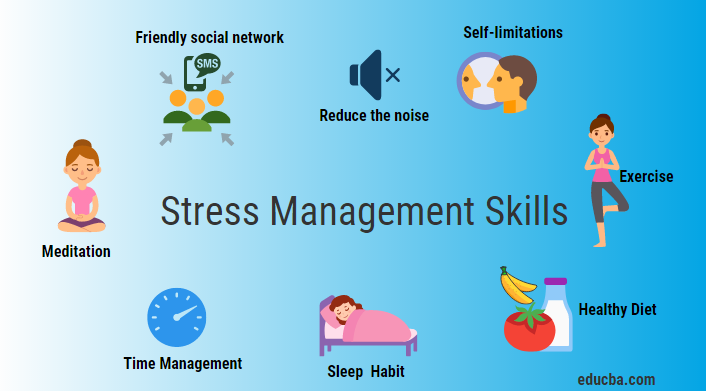Stress is an unavoidable part of life, but it’s essential to manage it effectively to maintain our mental and physical well-being. Fortunately, there are many techniques that can help reduce stress and promote relaxation.
By incorporating these techniques into your daily routine, you can experience greater calmness, improved mood, and better overall health. Here are ten effective stress reduction techniques to help you live a happier and healthier life.
Deep Breathing:
Deep breathing is one of the simplest and most effective stress reduction techniques. By taking slow, deep breaths, you can activate your body’s relaxation response and calm your mind.
Find a quiet, comfortable place to sit or lie down, close your eyes, and take a slow, deep breath in through your nose, allowing your belly to rise as you inhale.
Hold your breath for a moment, then slowly exhale through your mouth. Repeat this process several times, focusing on your breath and allowing your body to relax with each exhale.
Progressive Muscle Relaxation (PMR):
Progressive muscle relaxation is a technique that involves tensing and then relaxing different muscle groups in your body.
Start by tensing the muscles in your feet and slowly work your way up to your head, tensing and relaxing each muscle group for a few seconds.
Pay attention to the sensations of tension and relaxation in each muscle group, allowing yourself to release any tension you may be holding onto.
Mindfulness Meditation:
Mindfulness meditation involves focusing your attention on the present moment without judgment. Find a quiet place to sit comfortably, close your eyes, and focus on your breath.
Notice the sensation of your breath as it enters and leaves your body, and whenever your mind wanders, gently bring your attention back to your breath.
Practicing mindfulness meditation regularly can help reduce stress, promote relaxation, and improve your overall sense of well-being.
Yoga:
Yoga is a mind-body practice that combines physical postures, breathing exercises, and meditation to promote relaxation and reduce stress.
There are many different styles of yoga, ranging from gentle and restorative to more vigorous and challenging.
Find a style of yoga that suits your needs and preferences, and practice regularly to experience the stress-relieving benefits.
Tai Chi:
Tai Chi is a gentle form of martial arts that focuses on slow, flowing movements and deep breathing. Practicing Tai Chi can help reduce stress, improve balance and flexibility, and promote a sense of calm and well-being.
Find a local Tai Chi class or follow along with an online video to learn the basic movements and start experiencing the stress-relieving benefits of this ancient practice.
Exercise Regularly:
Regular exercise is one of the best ways to reduce stress and improve your mood. Physical activity releases endorphins, which are natural stress-fighters and mood boosters. Aim for at least 30 minutes of moderate exercise most days of the week.
Find activities you enjoy, whether it’s walking, swimming, cycling, or dancing, and make them a regular part of your routine.
Spend Time in Nature:
Spending time in nature has been shown to reduce stress and promote relaxation. Take a walk in the park, go for a hike in the woods, or simply sit outside and enjoy the sights and sounds of nature.
Even a few minutes of outdoor time can help clear your mind and reduce feelings of stress and anxiety.
Practice Gratitude:
Practicing gratitude can help shift your focus from negative to positive, even during challenging times. Take time each day to reflect on the things you’re grateful for. Keep a gratitude journal and write down three things you’re thankful for each day.
This simple practice can help cultivate a more positive outlook and reduce feelings of stress and anxiety.
Set Boundaries:
Setting boundaries is an important aspect of stress reduction. Learn to say no to things that drain your energy or cause you stress.
Be clear about your limits and communicate them to others. Setting boundaries can help reduce feelings of overwhelm and prevent burnout.
Get Enough Sleep:
Getting enough sleep is essential for managing stress and maintaining good overall health. Aim for seven to nine hours of quality sleep each night.
Establish a relaxing bedtime routine, avoid caffeine and electronic devices before bed, and create a comfortable sleep environment to ensure you get the rest you need.
Conclusion
By incorporating these ten stress reduction techniques into your daily routine, you can experience greater calmness, improved mood, and better overall health.
Experiment with different techniques to find what works best for you, and make stress reduction a priority in your life. By taking proactive steps to manage stress, you can live a happier and healthier life.

Leave feedback about this